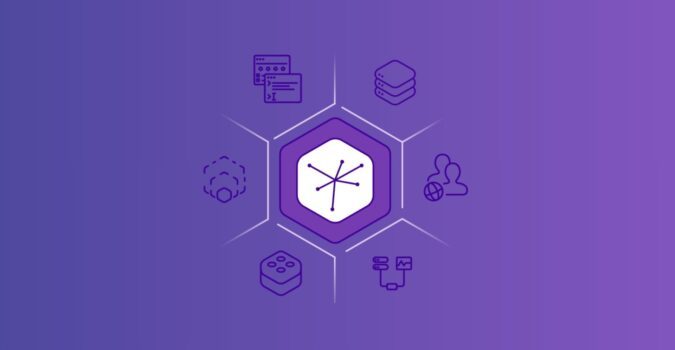The Shift from Automation to Intelligence
Enterprise automation is evolving, and AI agents are at the center of that transformation. We’re no longer simply replacing repetitive tasks – we’re reimagining how businesses operate through intelligent, autonomous systems that reason, adapt, and collaborate.
AI agents represent the next wave of digital transformation. Unlike traditional workflows, which follow static rules, agentic systems make decisions in real time. They use context, data, and prompts to act with autonomy. These aren’t just bots – they’re digital teammates equipped with the intelligence to execute complex workflows and continuously improve outcomes.
With platforms like Salesforce Agentforce, we now have the tools to embed these AI agents into core business systems. That means support teams resolving issues before they escalate, sales teams guided to the next best action, and executives with instant access to insights that drive strategy.
The result? Enterprises are scaling smarter, responding faster, and freeing people to focus on high-impact work that drives competitive advantage.
In This Article
- What Are AI Agents?
- Why Agentic AI Implementation Is the Future
- Best Use Cases for AI Agents
- Industry-Specific AI Agent Applications
- The Human Side of AI Agents
- Building Trust in Autonomous Systems
- Governance and Ethics of Agentic AI
- How to Prepare Your Business for Agentic AI
- From Vision to AI Implementation
- Agentforce: Launching AI Agents the Right Way
- Common Pitfalls to Avoid
- How to Measure Success with AI Agents
- Agentforce in Action: Real-World Scenarios
- The Road Ahead: Scaling with AI Agents
- The Future Is Here and It’s Agentic
- Ready to Put AI Agents to Work?
What Are AI Agents?
AI agents are autonomous software systems trained to perform business tasks with minimal human input. They differ from traditional automation in two key ways:
- Autonomy: AI agents can initiate and execute tasks based on real-time triggers, not just pre-set rules. This allows them to operate proactively, identifying optimal engagement moments, shifting workflows as conditions evolve, and delivering timely outcomes without waiting for manual input.
- Contextual Intelligence: AI agents leverage both structured and unstructured data to understand context, personalize their actions, and continuously adapt. This enables them to make smarter decisions, align with user needs, and refine performance with each interaction.
Salesforce Agentforce enables these agents to operate natively across Sales Cloud, Service Cloud, and Experience Cloud. That tight integration ensures agents can reason, act, and deliver impact within the systems your teams already rely on. And because they’re built with modular components, they can be customized to meet the specific needs of different departments and roles.
Why Agentic AI Implementation Is the Future
Agentic AI isn’t just a trend. It’s a paradigm shift. Businesses that adopt agent-first architectures are transforming how work happens:
- Improving CX at scale by embedding always-on support that understands customer context and history.
- Driving operational efficiency by eliminating redundant, manual workflows and enabling straight-through processing.
- Empowering teams with real-time guidance, intelligent task automation, and streamlined access to the data they need.
Unlike traditional chatbots, these agents aren’t limited to reactive scripts. They can proactively resolve tickets, generate personalized outreach, route tasks based on business logic, and more operational aspects of your business. And because they’re grounded in real data, their recommendations are accurate, compliant, and aligned with organizational priorities.
Best Use Cases for AI Agents
Whether you’re scaling support or optimizing sales, here are key use cases where AI agents deliver ROI:
- Customer Support: The best AI agents can manage a high volume of routine tickets – automating resolutions for common issues, surfacing relevant knowledge base articles, and intelligently escalating edge cases. This reduces time to resolution and improves CSAT scores.
- Sales Enablement: They can analyze account data and buyer signals in real time to suggest timely follow-ups, create personalized outreach, draft call summaries, and auto-log interactions – freeing up reps to close more deals.
- Onboarding: From employee training paths to customer implementation flows, agents streamline the collection of inputs, initiate required processes, and nudge stakeholders toward the next steps, ensuring a smooth start.
- Compliance & Risk: AI automation agents can monitor document repositories, track adherence to process standards, and trigger alerts when inconsistencies or risks are detected, helping firms stay audit-ready and protected.
Looking for the best AI agent and AI implementation for your business needs? The answer depends on alignment between your goals, your data, and the systems where your agents will operate. The best AI agents are not one-size-fits-all. They’re context-aware, role-specific, and designed with your workflows in mind.
Industry-Specific AI Agent Applications
AI agents are versatile by design, but their greatest value emerges when tailored to industry-specific challenges. Across sectors, organizations are embedding agentic AI into critical workflows to reduce friction, accelerate outcomes, and unlock new value.
Healthcare
Healthcare organizations are leveraging AI agents for claims processing, appointment scheduling, and patient triage. These agents can route cases based on urgency, flag documentation gaps, and provide staff with real-time guidance, freeing up clinicians to focus on care delivery. AI agents also help streamline prior authorization workflows, improving patient access to timely treatment.
Financial Services
Banks, insurers, and wealth management firms use AI agents for tasks like Know Your Customer (KYC) verification, fraud monitoring, and investment portfolio updates. Agents can scan thousands of transactions for anomalies, automate compliance checks, and prepare customer-ready insights. This reduces regulatory risk while improving service responsiveness.
Retail & eCommerce
Retailers are deploying agents to manage returns, optimize inventory levels, and personalize customer outreach. AI agents can detect purchasing patterns, generate tailored promotions, and trigger real-time support, enhancing both operational efficiency and customer satisfaction.
Manufacturing & Logistics
In supply chain operations, AI agents help coordinate inventory movements, monitor equipment for predictive maintenance, and flag potential disruptions. These proactive systems enable faster decision-making across global operations and reduce costly downtime.
The takeaway? While the core capabilities of AI agents remain consistent–reasoning, adapting, acting–their highest impact comes from aligning those capabilities with the nuances of each industry’s workflows and KPIs.
The Human Side of AI Agents
One of the most powerful aspects of agentic AI is its ability to amplify, not replace, human talent. AI agents take on the repetitive, data-heavy tasks that bog down teams, enabling people to focus on strategy, creativity, and decision-making.
This collaboration between humans and AI creates a multiplier effect. Sales reps close more deals with less admin work. Customer service agents spend more time on high-value interactions.
Operations teams can manage complexity without growing headcount.
AI agents support teams by freeing them from routine and cognitive overload, allowing humans to lean into what they do best: critical thinking, empathy, and innovation.
Building Trust in Autonomous Systems
For AI agents to be at scale, trust is essential. Users need to know how decisions are made, and businesses need to feel confident about governance and control.
Building that trust means:
- Transparency: Use explainable AI methods and clear audit trails.
- Security: Ensure agents follow enterprise-grade authentication and compliance.
- Control: Provide humans with the ability to override, retrain, or refine agent behavior.
Trust grows when agents perform reliably and consistently – and when teams feel empowered, not threatened, by the technology.
Governance and Ethics of Agentic AI
As AI agents become more embedded in decision-making processes, governance and ethics must move to the forefront. Unlike traditional software, agentic AI systems act autonomously, adapt over time, and influence critical business outcomes, making oversight not just important, but essential.
To ensure ethical use, organizations must adopt clear governance frameworks that define where and how AI agents can operate. This includes establishing guardrails around data access, agent permissions, and the scope of decision authority. Agentic systems should also provide transparent reasoning for their actions, especially when those actions impact customers, employees, or compliance. In a McKinsey & Company study, 28% percent of respondents reported that their CEO is responsible for overseeing AI governance, and 17% say their board of directors is responsible for AI governance. AI governance is a major priority for businesses in this new world of Agentic AI.
Auditability and explainability are key. Leaders need to know not just what an AI agent decides, but why. Techniques like prompt logging, version tracking, and traceable logic flows help build that visibility. Human-in-the-loop designs are equally important, allowing users to override, retrain, or fine-tune agent behavior as needed.
Finally, equitable outcomes must be prioritized. This means monitoring for bias in training data, ensuring diverse representation in pilot testing, and applying fairness checks before agents go live.
How to Prepare Your Business for Agentic AI
Implementing AI agents isn’t plug-and-play. Intelligent automation requires internal readiness and clear alignment between business units, IT, and leadership.
Ask yourself:
- Is your data structured, clean, and accessible?
- Are key processes well documented?
- Do teams understand the “why” behind adopting AI agents?
- Have you identified champions to support change management?
We recommend running a discovery sprint before implementation. This sprint maps opportunities, surfaces blockers, and defines success metrics – setting the stage for scalable adoption.
Organizational readiness isn’t just about technical infrastructure—it’s also about mindset. Teams that embrace experimentation and continuous learning will get the most value from AI agents.
From Vision to AI Implementation
AI agents only succeed when the implementation is done right. That starts with a clearly defined use case, clean and accessible data, and a partner who understands both your technology stack and your operational realities.
At LaunchPad Lab, we treat AI implementation as more than a tech launch; it’s a strategic transformation. We prioritize co-creating with our clients, aligning agents with real business outcomes, and building scalable foundations from day one.
Key implementation best practices include:
- Start with a contained, high-impact workflow where automation can prove its value quickly.
- Ground agents in real business data, not hypotheticals – ensuring reliable context and accuracy.
- Train internal teams to collaborate with AI agents effectively and confidently.
- Build feedback loops into the system so agents can learn from performance and improve over time.
- A phased approach helps build internal trust, deliver early wins, and reduce change fatigue.
Agentforce: Launching AI Agents the Right Way
Agentforce simplifies the complexity of deploying AI agents by leveraging Salesforce’s native capabilities. Its architecture combines Einstein AI, Data Cloud, Flow, and the Atlas reasoning engine to support:
- Prompt-driven task execution
- Cross-system orchestration
- Secure data access and compliance
- Contextual, evolving intelligence
At LaunchPad Lab, we’ve guided organizations through the Agentforce implementation process, helping them go from pilot to production with clear ROI. From discovery to deployment, we focus on building agentic systems that are aligned with business outcomes.
Our cross-functional teams bring deep Salesforce expertise, enterprise-grade engineering, and a strong UX lens, ensuring AI agents don’t just work, but work intuitively and at scale.
Common Pitfalls to Avoid
Despite the power of AI agents, many implementations fall short. Here’s why:
- Poor Data Quality: If your data is incomplete or siloed, your AI agent will be ineffective.
- Undefined Success Metrics: Without clear KPIs, it’s difficult to measure impact.
- Lack of Team Readiness: Human agents need training to collaborate effectively with AI.
- One-Size-Fits-All Design: AI agents must be tailored to your workflows, not vice versa.
Avoiding these pitfalls requires a strategic partner who can balance the technical execution with the broader business transformation.
How to Measure Success with AI Agents
To prove ROI, businesses should track specific KPIs that align with each agent’s role. Key metrics might include:
- Time saved per task or workflow
- Error rate reduction in manual processes
- Response time improvements in customer service
- Lead conversion or sales cycle acceleration
For example, a service agent might reduce average resolution time by 40%, while a sales agent could help increase email open rates by 25%. Tracking these outcomes over time supports continuous optimization and stakeholder buy-in.
Agentforce in Action: Real-World Scenarios
To bring this to life, imagine the following with Salesforce Agentforce:
- A staffing firm uses Agentforce to screen applications, surface qualified candidates, and automate onboarding, cutting cycle time in half.
- A health tech provider deploys service agents that triage patient support requests, improving patient satisfaction and staff capacity.
- A SaaS company enables sales agents to write contextual emails based on CRM data, doubling outbound engagement.
These intelligent automation scenarios reflect the kind of business transformation already underway at organizations embracing AI agents.
The Road Ahead: Scaling with AI Agents
Once your first agent proves successful, it’s time to scale. That means identifying additional workflows, expanding functionality, and continuously improving with user feedback.
Agentforce enables iterative scaling:
- Add new agents for different departments or use cases.
- Expand capabilities by integrating with more data sources.
- Improve performance using machine learning and outcome tracking.
The organizations that scale AI agents most effectively are those that treat them as long-term digital teammates, not just short-term tools.
The Future Is Here and It’s Agentic
The businesses leading their industries tomorrow are building their digital workforces today. AI agents are no longer a vision for the future – they’re an essential part of your operating model now.
Organizations that embrace agentic AI aren’t just automating – they’re architecting intelligent systems that scale, learn, and drive real outcomes.
Recapping what we’ve explored:
- The best AI agents are transforming business operations by embedding contextual intelligence into every layer of the enterprise.
- Agentforce provides a flexible, secure, and scalable foundation to operationalize these agents in Salesforce ecosystems.
- Success depends on a clear strategy, human-centered design, and iterative implementation with continuous feedback loops.
When businesses pair the right technology with the right implementation strategy, AI agents don’t just optimize–they revolutionize. And the ROI speaks for itself: faster cycle times, higher customer satisfaction, and lower operational overhead.
Ready to Put AI Agents to Work?
Whether you’re in healthcare, finance, retail, or beyond, the opportunity is clear: smarter systems, faster outcomes, and empowered teams.
If your organization is ready to explore how AI agents can transform your operations, from scalable automation to intelligent, context-aware decision-making, let’s start a conversation.
We’ll guide you through every step, from opportunity mapping to full implementation with Agentforce or another AI-native platform that fits your needs.



